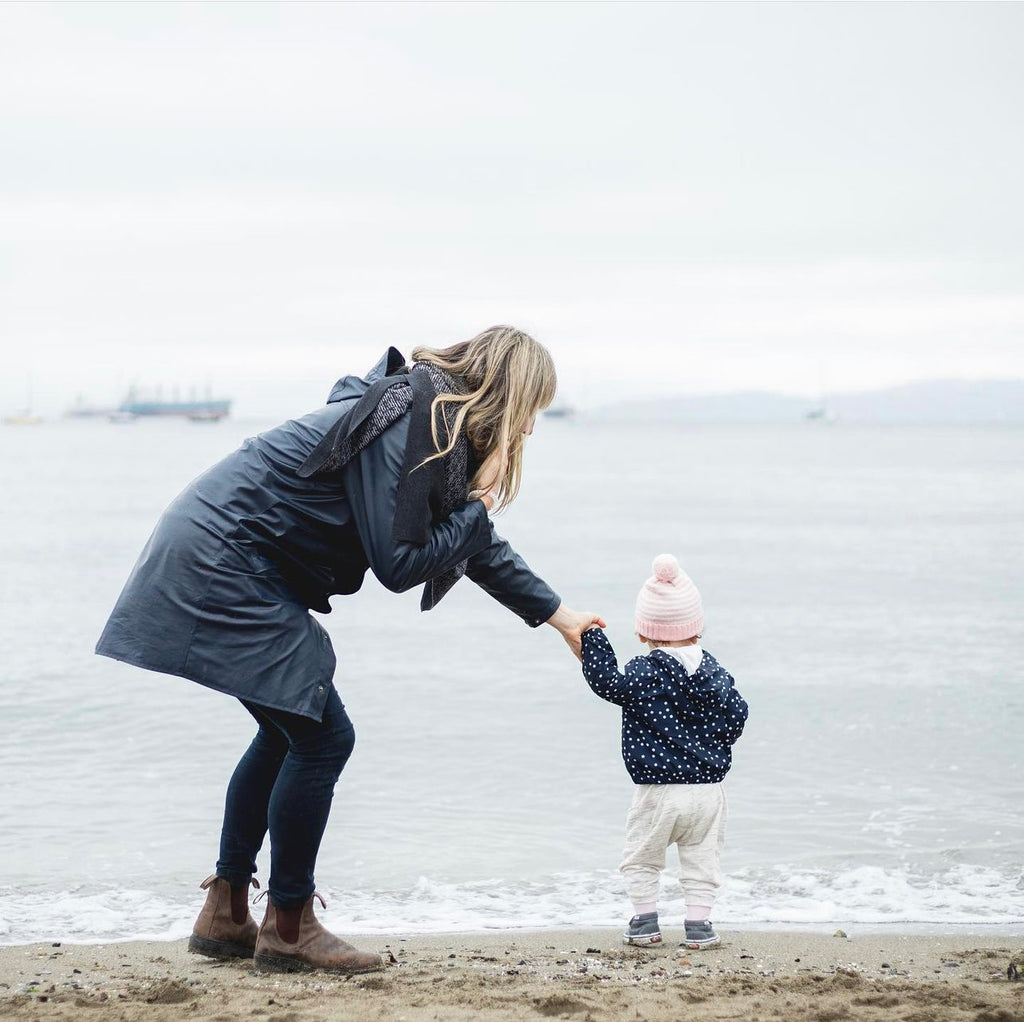Mindfulness as a Family Practice with Carolyn Anne Budgell

Yoga & Breathwork Practitioner (and extraordinary person!) Carolyn Anne Budgell joined us last week at "The Nook" to guide and speak on soothing ourselves as parents in order to be able to share that practice with our children...
The last couple of years have been stressful and tumultuous. As we have become more aware of the struggles we as humans face, we have found a greater need for meditation and the rest of the world is now onboard. If these years have included becoming a parent, then the importance of taking stock of what you need for yourself is exponentially greater. When checking in with parents about what they need what we hear most is "sleep, patience, calm, the ability to turn my brain off"
What do you need right now? Listen, breathe and acknowledge yourself and your state first. How's your low belly, your body, your mind? What do you need?
Our job as caregivers is less about being happy or about trying to ensure our kids are always happy (a bit unrealistic as life will always include pain and suffering) - these practices exist to increase our ability to move through big emotions, so that we’ll better cope with our emotions.
Our children (and all humans) seek CONNECTION and BELONGING. We need to let them know that their emotions are not too big for us. We can hold them and welcome them no matter what feelings are flowing through their system. What if we could offer compassion and presence for what they are feeling rather than deny or micromanage or fix or shut down?
The practice of mindfulness and meditation together will give you some tools to help you regulate yourself and in turn teach your child to be able to regulate themselves during moments of big emotions.
The following are simple practices you can do with your child. Children mimic and mirror us and want to do what we do. Practicing these techniques together is much more effective than telling your child to go to their "quiet corner". And remember, they will also benefit and calm your system.
- Hot chocolate breath - blowing on and cooling down a hot drink
- Hold a stuffy in front of your tummy and breathe with the stuffy
- Ring a bell and listen till it ends / goes quiet again
- Lions Breath / Cookie Monster Breath
- Shake / Sway / Spin / Stomp *jumping is very regulating for children
- Cosmic Kids Yoga
- Run around the house 5 times
- Watch your breathing and reflect slowness like sand falling
- Card or a book that have feelings on them, to give them the language for all emotions / feelings
Model these techniques. You are doing it WITH them and you are doing it FOR them. Let them know you are doing this for yourself
"I'm feeling so impatient right now. I need to shake it off."
Carolyn Anne notes that there are so many techniques and practices we're supposed to do to be more calm and patient, but we actually need LESS. Do we really need to add more into our routine? She found it helpful to reframe how she looked at motherhood and what she was "supposed to" be doing. "Instead of trying to sleep when I couldn't I would set my timer for 10 minutes and stretch with my legs up the wall."
Practice needs to happen in calm moments. These techniques will start working when you practice them everyday. Learning can't happen when we or our children are dysregulated, so it won't be effective to teach lion's breath for the first time in the middle of a meltdown. It takes dozens of repetitions for a new habit to take effect, so the repetition is crucial for our kids (and for us).
We need tools for the moments, but really the big changes happen over time. Creating change is slow. When our nervous systems are on overdrive a third reaction, other than fight or flight, is freeze. To make change we must continuously be coming back to "What is it I need right now?" Put on your own oxygen mask first. It's hard to switch that way of thinking from putting our children first, but it needs to be your lifeforce first to be able to give to them.
- Can I give myself a night off / away?? a week from now, in a month or 6 months? (it's so important for us to step away, it'll be hard the first time but gets easier and our kids need to also gain a bit of independence from us. They need to see us leave and return again!)
- What does success FEEL like? Not what does it look like to others?
- What do I value?
- Am I embracing childlike awe and playfulness or am I reacting childishly?
- Am I needing to set a boundary somewhere or with someone?
- Can I always keep the focus on what I need first?
- "What do I need right now?"
All these phases we experience are not permanent. We can change and changes will happen very quickly around us. The phase we are in as parents will change sometimes overnight.
It can be very uncomfortable to change but transformation and growth are always possible! For our kids and for us!
A LITTLE RESTFUL PRACTICE WITH CAROLYN ANNE!Listen to this audio meditation, it's all about lying down, relaxing your body and offering it sensations of rest.
@carolynannebudgie
Join us this Wednesday Dec. 14th at "The Nook" when we host Carley from Wee Talkers as she shares an overview of early language development.